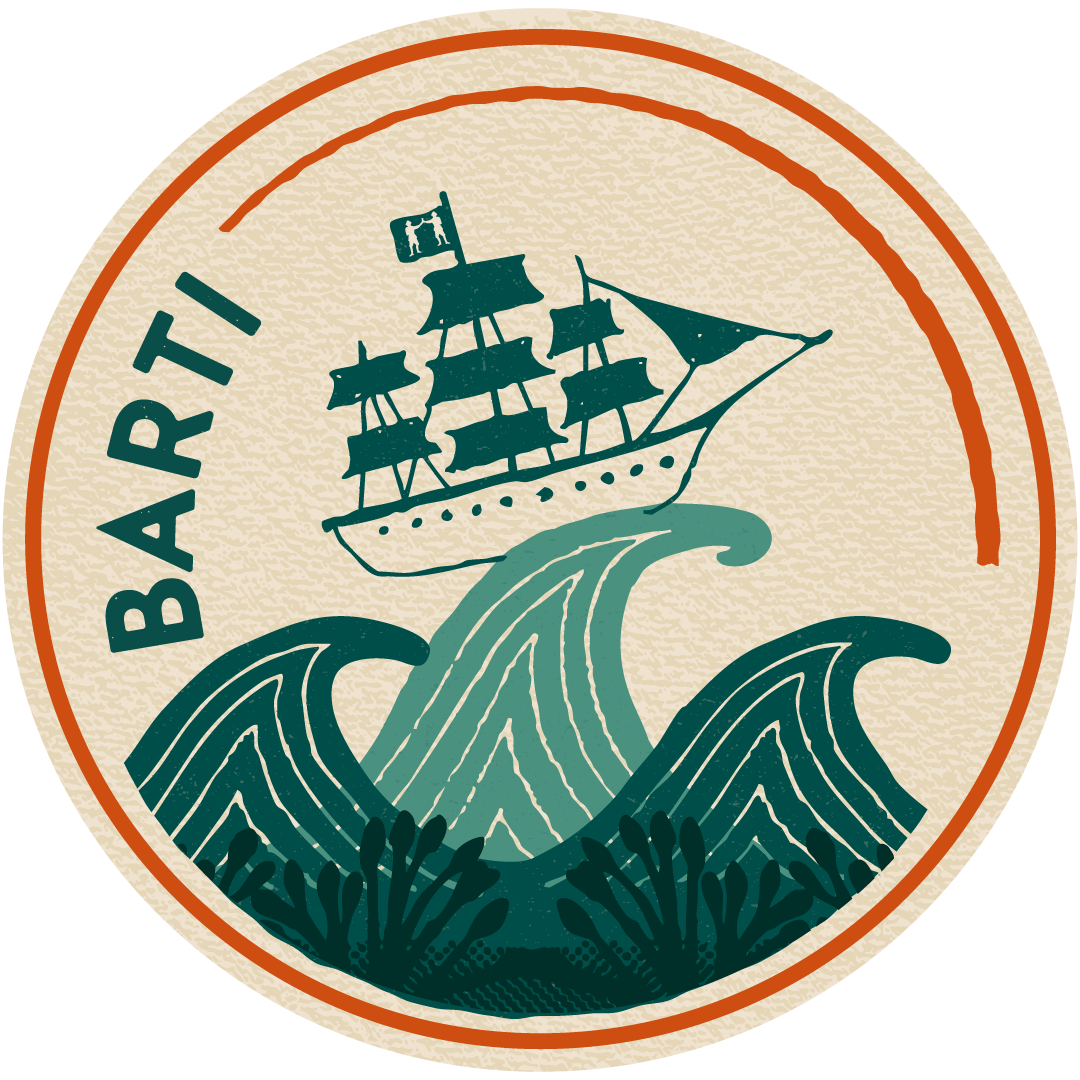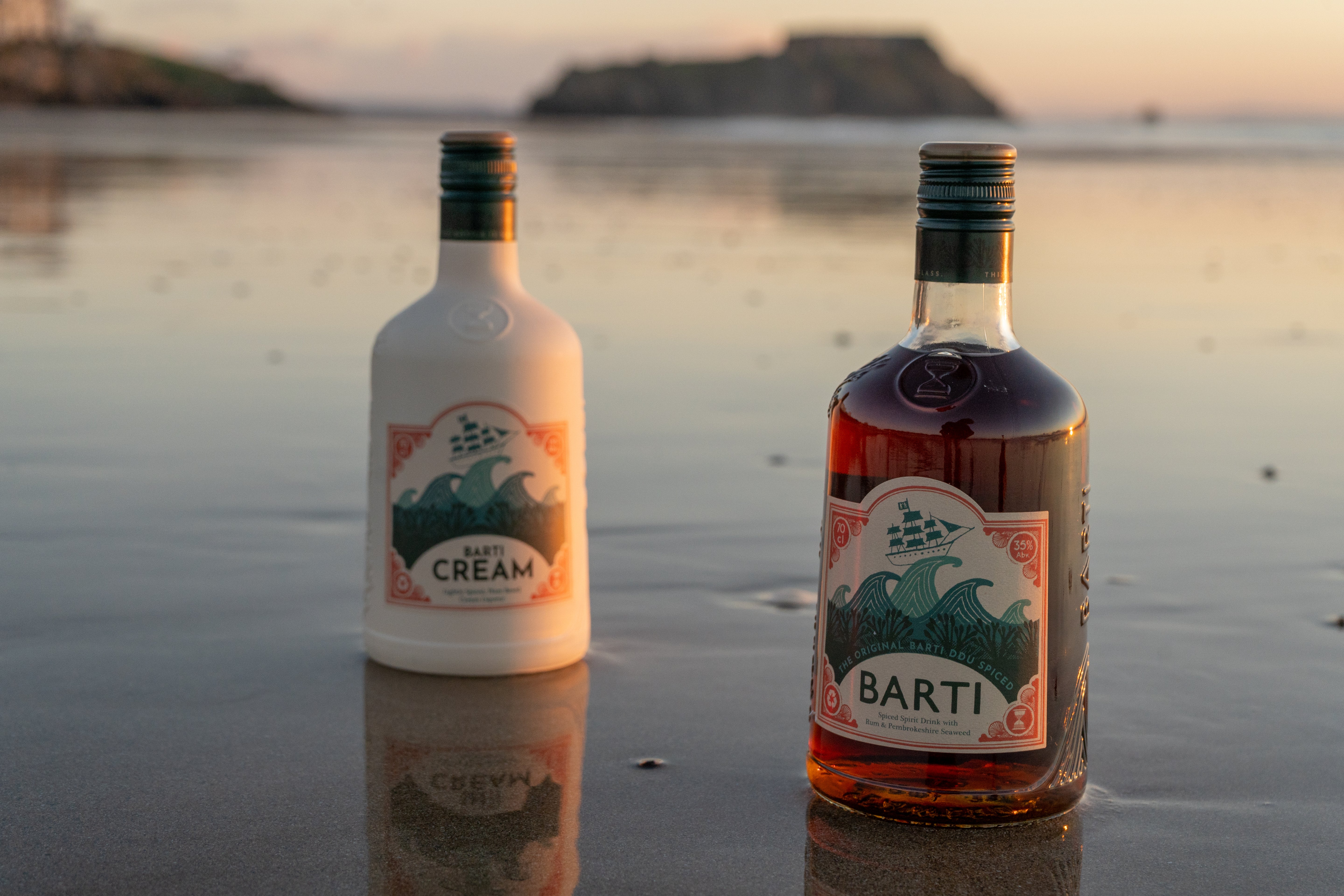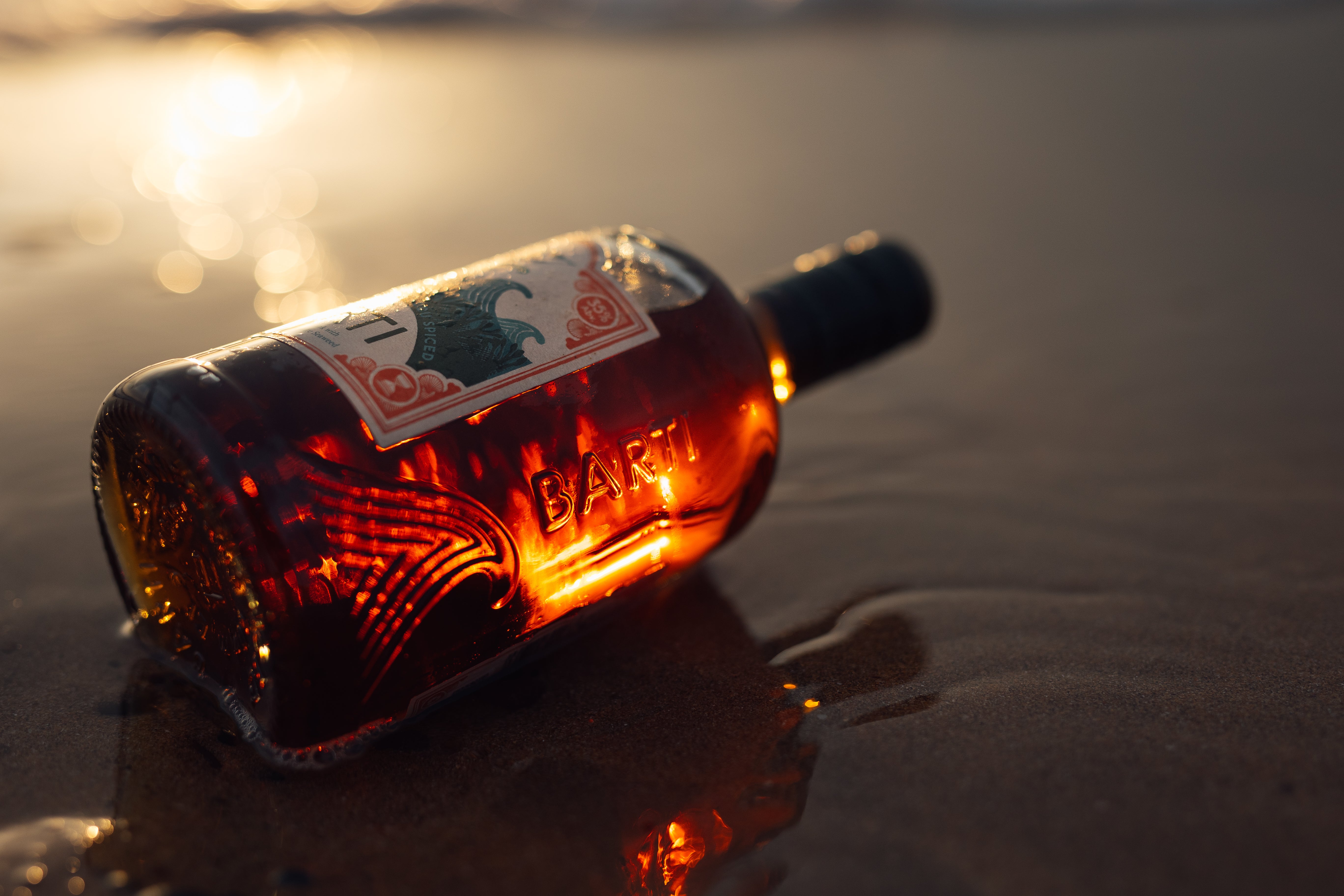2: Pushing The Project Forward (& Ranting)

Now is the worst time to open a pub. If we’re talking about the entire history of mankind, a properly bad time to open a pub would have been the caveman days when they didn’t know what pubs were. That would have been the worst time, and second place would be now in 2022.
I have opened a pub. In the post covid, post Brexit, mid energy crisis bedlam that is 2022 I have taken on The Old Point House in Pembrokeshire, West Wales. The pub itself is a 400 year old pub “re-born”, it is such a lovely pub.
Also, it might be worth mentioning that I have never in my life worked behind a bar, ever. So considering it is the worst time in the history of mankind to open a pub (apart from the stone age) and the fact that I have never actually worked in a pub, now really isn’t a good time to get distracted with my seaweed blue carbon project. This is definitely something I shouldn’t do, really, really shouldn’t, but…
In between pub renovations, Barti Rum meetings, staff training, families, grandads 90th birthday party in Greece and well, chaos. I successfully applied for grants from the good folks of SMART Wales and MEECE. How I had time to do this I can’t quite remember especially considering that many “grant” consultants shudder at the very idea of applying for SMART WALES grant, as they are known to be notoriously difficult to get, and apparently carry a wedge of bureaucracy when it is time to claim your money back. (Looking forward to that.)
Anyhow for the time being, the folks at SMART Wales have been wonderful and have awarded me a grant of £30,000 (they pay 50% and my business pays 50%) to spend essentially on navigating the murky waters of consent for my seaweed lines in the very complicated world of coastal/ sea licensing. In a nutshell the sea is in disarray with various stakeholders and people with an interest in the sea for one reason or another and the goal is to carve out some permission from the powers that be and some physical space to get my project moving.
Let’s go back to basics, I want to grow seaweed to create life and capture carbon so that ultimately my business, and in the future many other business’, are not shitting on the world.
What I really should do is buy a field and plant trees. I could buy a field, they tend to go for around £5,000 to £10,000 (note that’s cheaper than what I need to stump up to get my grant) and I personally could plant enough trees to make my business “carbon neutral”. I wouldn’t need to ask permission from anyone, the field is mine. Then drive home happy and be proud that I have done my bit and probably treat myself to a nice long holiday somewhere hot and exotic.*
What I have instead chosen to do, is whittle out the very first path towards the same thing, but in the sea. Sadly the sea is a mess. Well, more the act of using part of the sea. I cannot buy a field in the sea as it is all owned by the royal family, I can only rent it. But to rent it I have to hold “official” talks with the following groups of people:
*Fishermen
*Shipping companies
*Conservation bodies
*Natural Resources Wales
*Leisure people
*The royal family
After our chats, I have to do environmental impact surveys, marine and visual assessments.
This process takes around 2 years and at the end of it I pay annual rent and everyone I spoke to above can still use my sea field.
Imagine renting a field, planting lots of trees and then anyone can come along and use it pretty much as they wish? Or renting a house but it is an open house for anyone who happens to be passing by, yep they can come in and enjoy your lovely rented house, sit on your furniture and enjoy the movie you happen to be watching and hey, even help themselves to what’s in your fridge. Oh and that privilege will cost you at least 10x more.
Also I forgot to mention the big elephant in the room and that is planting trees gives you official ‘carbon credits’ which is cool, it means you can officially say “Look at me I’m saving the world”. Seaweed doesn’t, countries and scientists have agreed that seaweed captures carbon, but they haven’t agreed on how long seaweed captures carbon for, so currently there is no carbon credit.
In essence this whole idea is ludicrous, expensive, difficult, and hugely time consuming.
As I mentioned before, to reduce my business’ carbon footprint I should, for an easy life, buy a field, plant some trees and then go have a nice sit down somewhere.
But that would be boring and just too easy….
So you great big blue difficult wonder of the world, let’s do this!
*In case lost on some people this is a jibe at pretty much all of us, we do one “good thing” and plough on with something pretty catastrophic, but it’s ok cause we did the good thing.
Barti | The Back Story - With Origin Story Below...
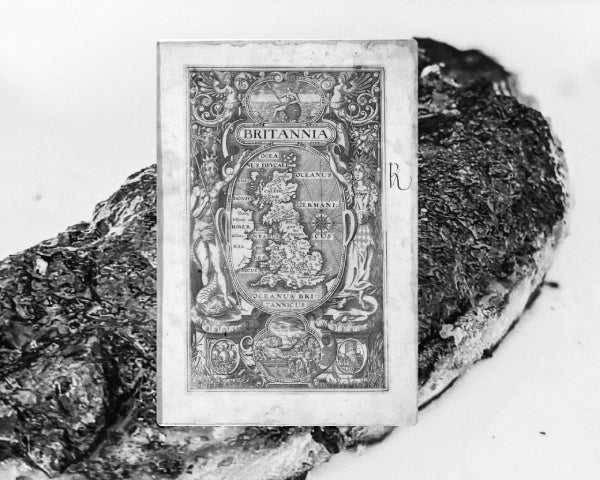
1607
The First Record Of Welsh People Eating Seaweed
Laverbread is recorded as a staple food, eaten in South Wales in William Camden’s work, Britania. The people of Swansea and the surrounding area are among the most charmed by this savoury green ingredient and devour it routinely, normally as part of their breakfast.
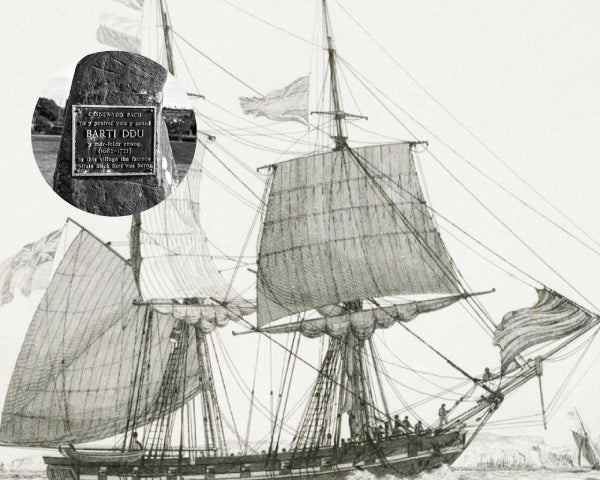
1682
A Young Boy Leaves Pembrokeshire
A boy called John Roberts was born in Casnewydd Bach (Little Newcastle in English), a tiny village in Pembrokeshire, West Wales. The boy grew and left home aged 11, he is recorded as joining the British Royal Navy in the lowest of ranks aged just 13.
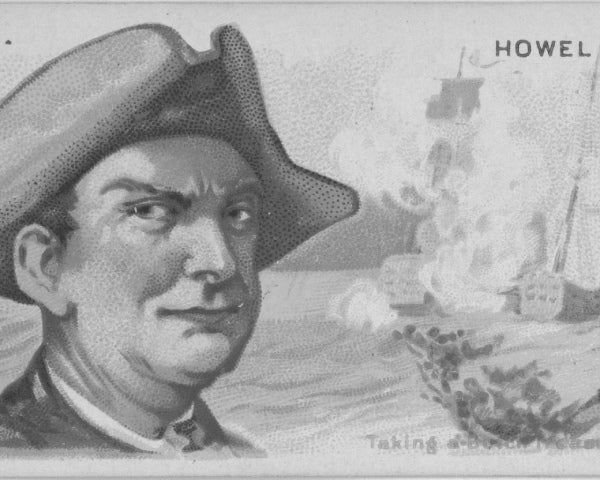
1719
Roberts Is Forced To Join His Pirate Captors
Age 37 Roberts’ long lowly career in the Navy has been habitually unremarkable until one day the ship he is working aboard is captured by pirates. Reluctant to join them, but less inclined towards being murdered, Roberts is initiated into the pirate crew which happens to be captained by another Pembrokeshire man, Howel Davies from Milford Haven.
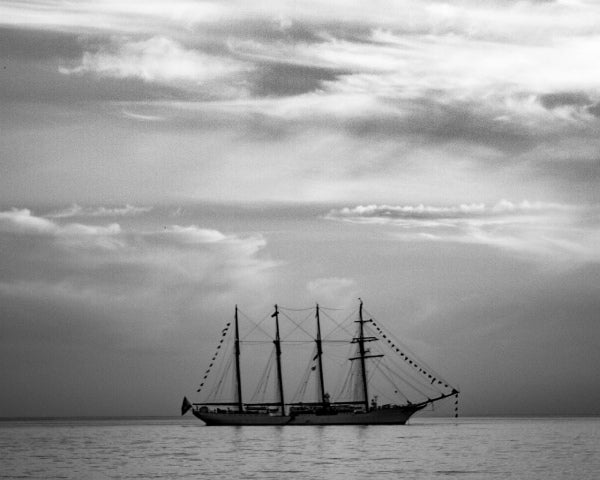
1720
Bartholemew The New Captain
Immediately hitting it off with his captor, John Roberts and Hywel Davies speak Welsh to one another and Davies values Roberts’ excellent navigational skills which were entirely overlooked by his former royal naval colleagues. When Davies is killed, the very popular second in command is immediately voted in as the new captain and takes on the alias name Bartholemew Roberts.

1721
The Most Prolific Pirate Career
Bartholemew is wanted dead by several of the richest countries in the world for his notoriously effective interceptions of Atlantic trading ships. Famed for his unprecedented success at seizing huge amounts of treasure over a short period, fiercely enforcing his pirate code which ensures every crew member (a third of whom were black) has an equal share and vote, ensuring his men don’t mistreat women, and being unapologetically unique in terms of style and attitude for the time.

1722
Forever Known As Barti Ddu or in English Black Bart
After his death Bartholomew Roberts becomes known as the infamous Black Bart, or Barti Ddu in Welsh. Barti Ddu was long constrained by poverty and the societal norms of the seventeen hundreds before his capture which ultimately freed him to be the individual he truly was.
It’s well documented that Bartholemew Roberts spent very little time in the company of women, some historians speculate that he was gay or in fact a she.
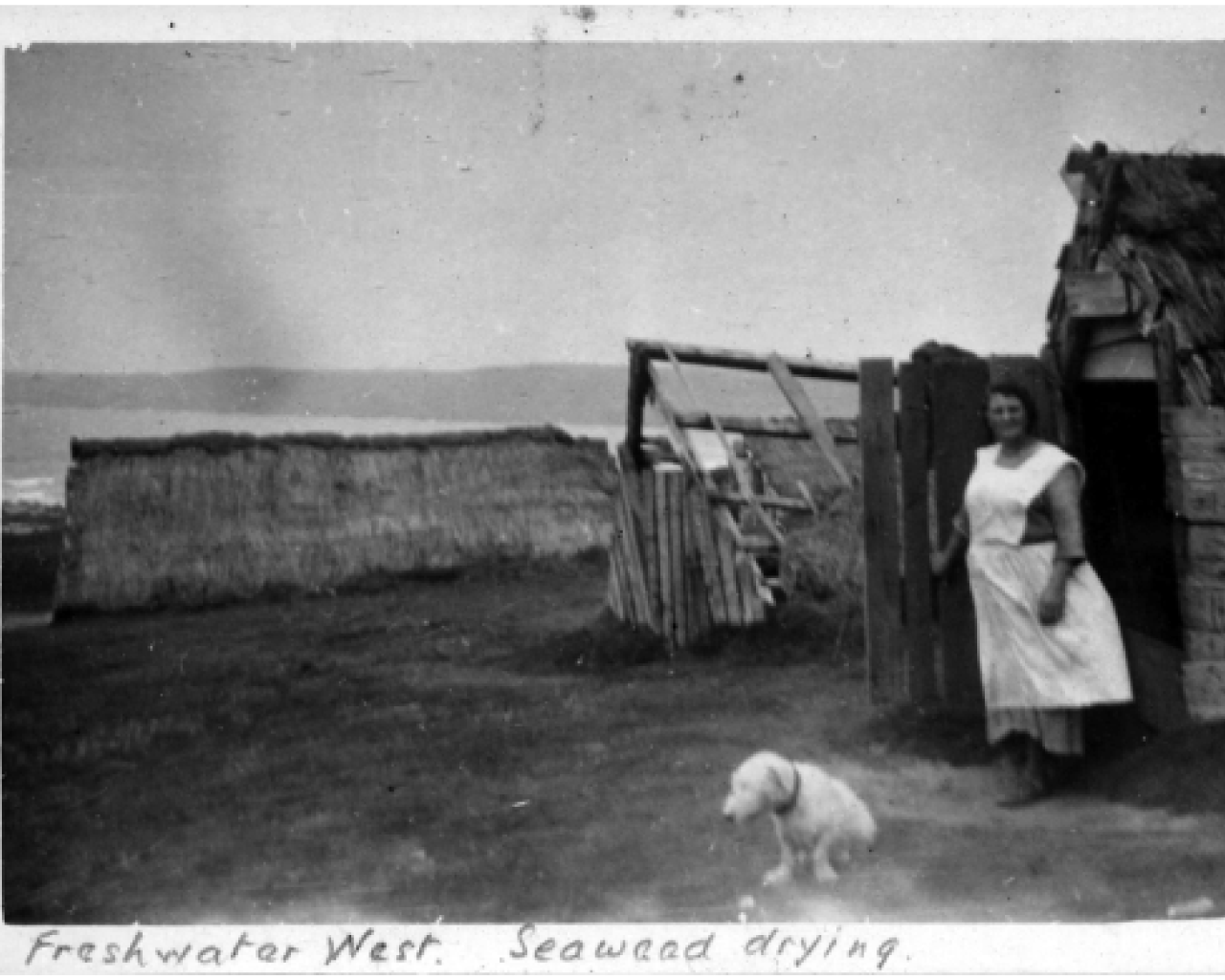
1879
A Pembrokeshire Shipwreck Over 100yrs After Barti's Death
The Thomas M Reed, bound for Liverpool from San Fransisco with tonnes of precious cargo. The ship never made it, wrecking off the Pembrokeshire coast. Cargo was strewn along Freshwater West, a secluded beach on the most South West tip of Wales, attracting people from as far as Swansea. The visitors noticed the abundant laver seaweed growing at Freshwater West realising it could be used to up production of their beloved laverbread. A deal was struck and laver began being picked by local women and transported to Swansea for processing.
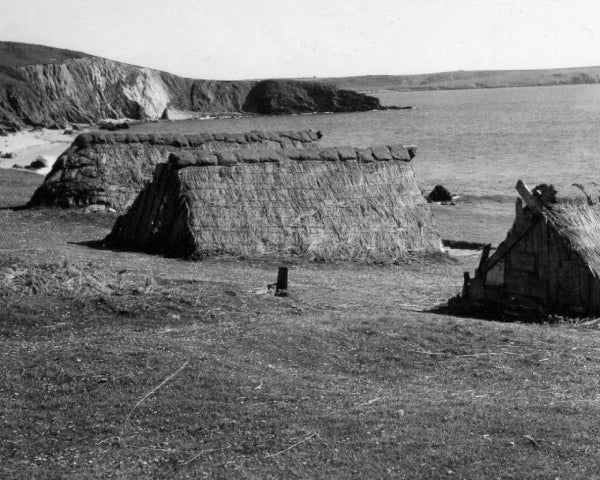
1940
Seaweed Collecting At Freshwater West Peaks Then Fades Away
The best of the seaweed harvesting years at Freshwater West are over as food fashions change and the availability of new and exciting delicacies arrive.
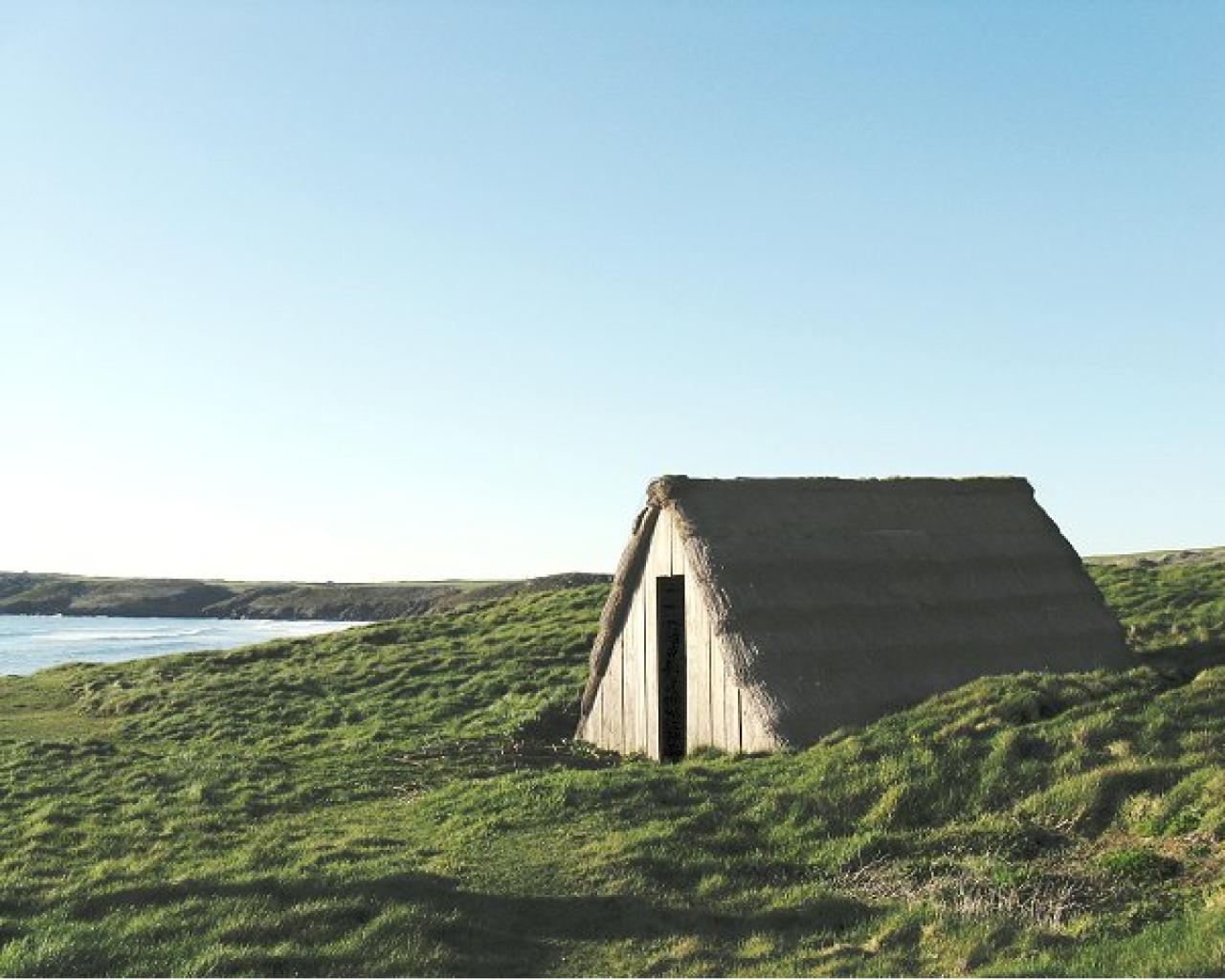
1995
A Physical Symbol Of Pembrokeshire's Seaweed Harvesting Heritage
The last remaining seaweed drying hut at Freshwater West beach is restored by The National Trust and becomes a grade two listed building.
Barti | The Origin Story
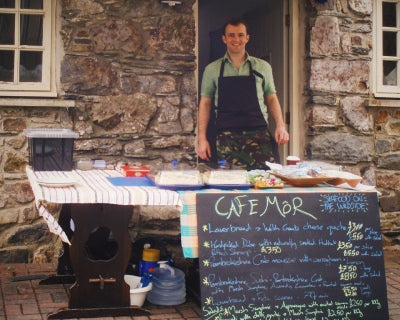
2010
Jonathan Williams is Homesick
Staring out of his landlocked Swindon office window, working in sustainability, but pining for Pembroke and his passions, cooking, story telling and the sea.
Captivated by harvesting wild laver seaweed at his local beach, from the preservation of the last drying hut. Jonathan acquires a taste for the seaweed himself and so inspired, he starts ‘The Pembrokeshire Beach Food Company’ trading his seaweed lobster rolls, sea plant salads and beach burgers at ‘Café Mor’. Jonathan quits his day job in Swindon.
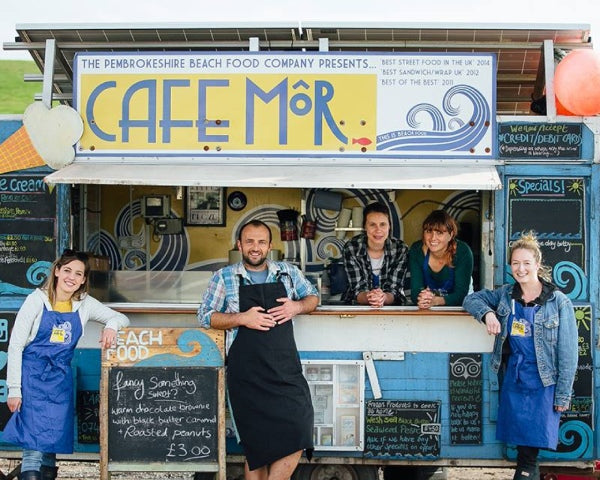
2012-2016
‘Cafe Mor’ Wows Crowds With Seaweed Inspired Menu
The seaweed inspired menu is a hit and wins gold at the British Street Food Awards and Café Mor caters for the athletes in the Olympic village, Glastonbury & other major UK events. Café Mor wins a permanent trade spot at home, where historical seaweed pickers worked from. Fran Barnikel joins on a temp graduate placement. Growth Continues.
His sideline of sea inspired condiments and crackers get traction and are commonly found in local shops.
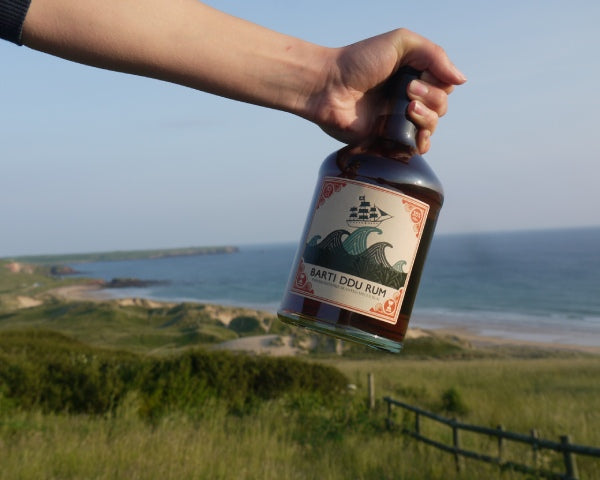
2017
BARTI DDU RUM IS BORN
Jonathan, takes two weeks off after the birth of his second daughter & returns to HQ with excitement & a new business idea, combining his favourite things; Seaweed, a great local story, this time a pirate 'Barti Ddu' & RUM. He'd already begun developing the flavour profile and sourcing expertly distilled rum from the Caribbean. Barti Ddu Rum was born.
Having always been a rum girl, it didn’t take much persuasion for Fran to get involved. Fran becomes a partner & later full time Managing Director.
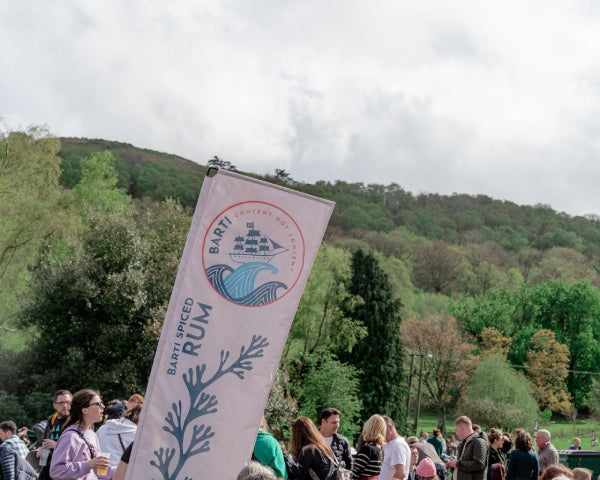
2019
Building A Brand
Barti Spiced Rum begins to really take off in Wales, especially as a new wave of rum lovers comes crashing in over the slowly plateauing gin craze. Barti builds itself as a brand for those much like Jonathan Williams. Driven by passion, creative, eco conscious and enthralled by the outdoors and what tales of adventure they have to offer, and are yet to facilitate.
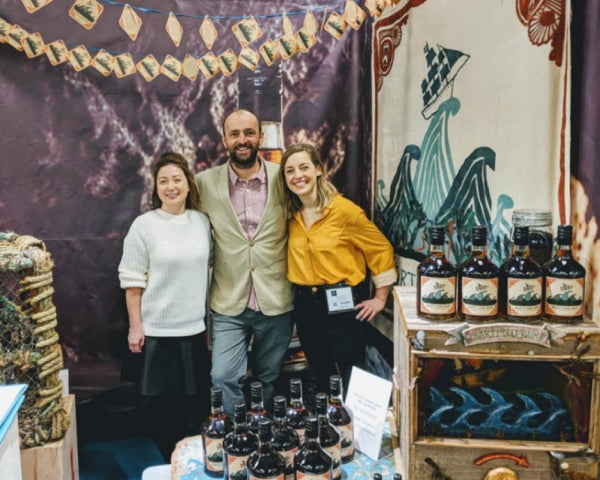
2020
Barti Rum Is Grateful To Its Loyal Following
Despite the obstacles of the pandemic Barti secures itself as the third best selling spirit in the portfolio of the biggest regional food service wholesaler in Wales, behind only mainstream brands Gordon’s Gin and Smirnoff Vodka. Amy Yamazaki joins the team heading up trade sales and expanding Barti’s presence in shops and bars across the UK.
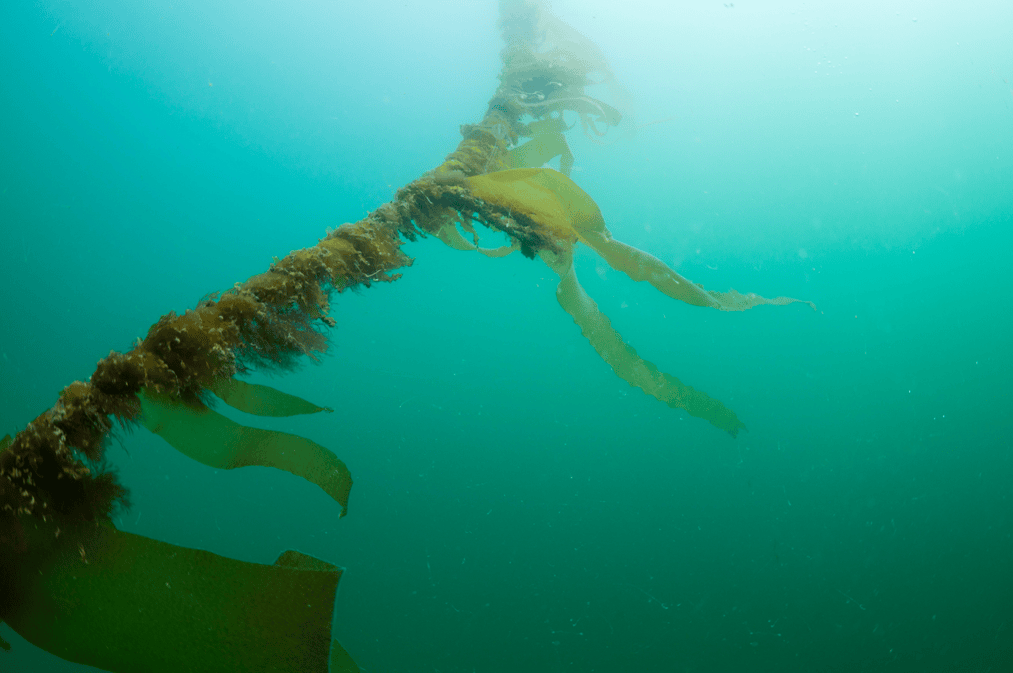
2023
Continuing to Grow, Prioritising Sustainability and Innovation
As the Barti Rum and Pembrokeshire Beach Food business’ continue to grow, Jonathan is now spear heading world leading research into the viability of seaweed as a carbon capture mechanism, something which could be a global game changer, and in the least, will make Barti Rum a carbon negative company in not too many years to come.
